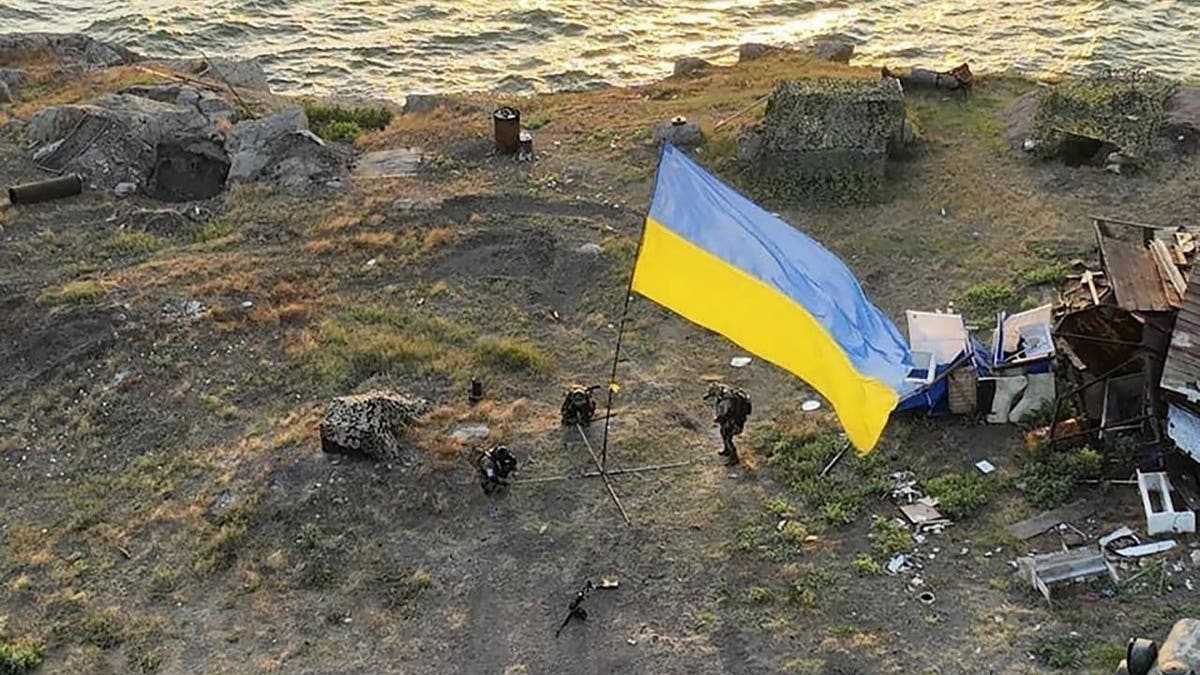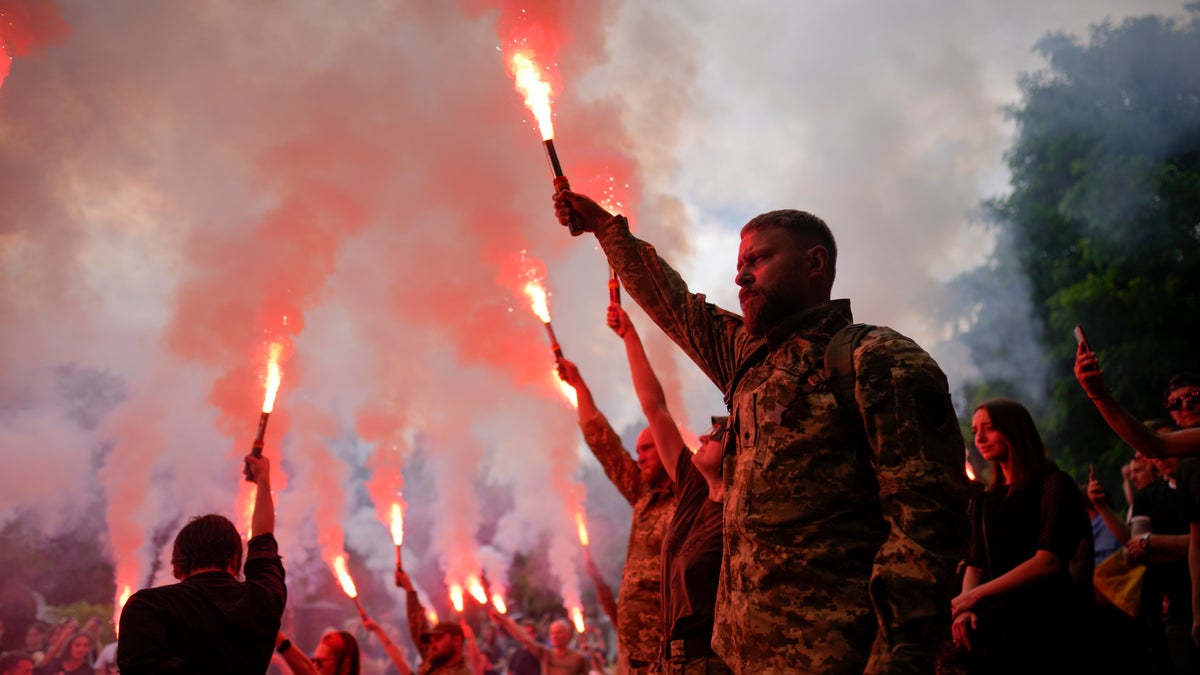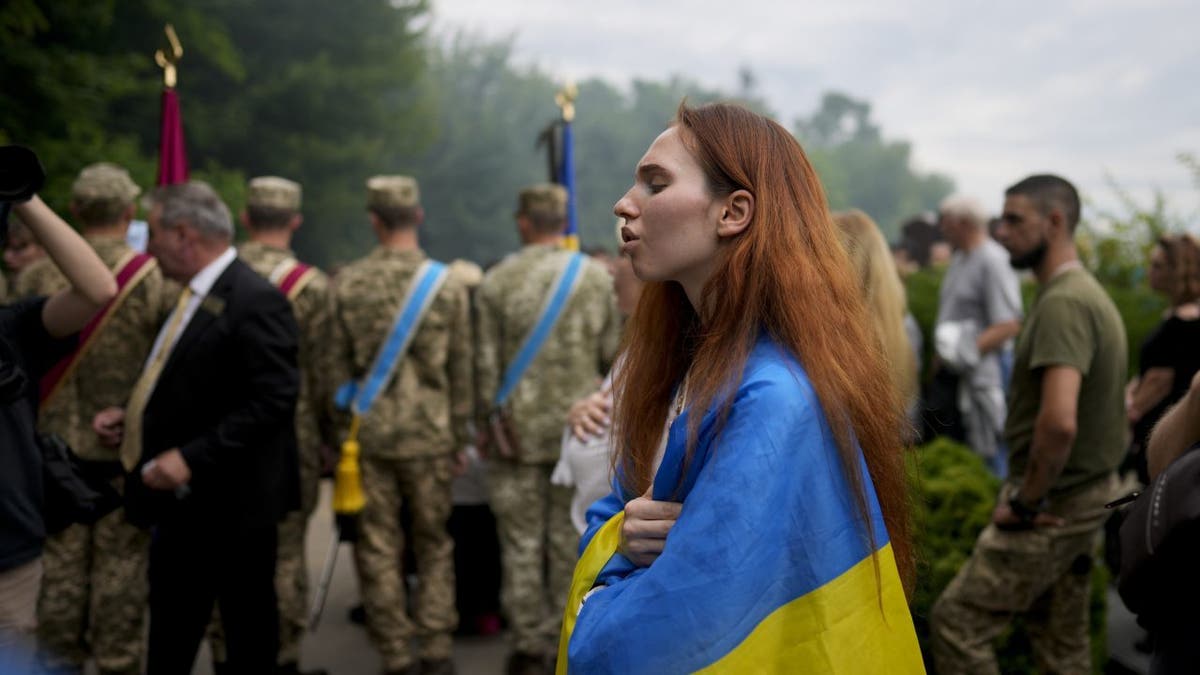Human rights activist speaks out against his people's participation in the Russian invasion of Ukraine
Fox News' Amy Kellogg speaks with Vladimir Budaev of the Free Buryatia Foundation, on how his people are being used as ‘cannon fodder’ in Russia's invasion of Ukraine
Human rights groups have long pointed out that the most impoverished regions of Russia are paying the highest price for the war in Ukraine. Now, some of those caught up in this war are speaking out for themselves.
One hundred fifty Buryat soldiers terminated their military contracts earlier this month, according to members of the Free Buryatia Foundation, a pro-democracy group based in the United States and representing its constituency from abroad.
A group of wives and mothers of the soldiers recorded a video appeal to the governor of Buryatia to let the servicemen return home. The video caused a stir and was quickly taken down by its intimidated producers.
But the men reportedly made it home after a detour to a closed military facility in Luhansk for some days. Still, the fact that the soldiers are back may be giving other groups hope that they too can recall their families.
EUROPEAN NATIONS COORDINATE ON PROSECUTING RUSSIAN WAR CRIMES IN UKRAINE

In this photo provided by the Ukrainian Defence Ministry Press Office July 7, 2022, Ukrainian soldiers install the state flag on Snake Island in the Black Sea. (Ukrainian Defence Ministry Press Office via AP)
Buryatia, according to Vladimir Budaev of the Free Buryatia Foundation, ranks 81st among 85 regions in wealth in the Russian Federation. Put another way, it is close to being the poorest part of the country.
Buryats are closely related to the people of Mongolia. Budaev claims the region in east Siberia is kept artificially poor by the center, by the Kremlin, in order to keep it dependent on the largesse of Moscow. Buryatia has one of the highest war casualty rates in Russia.
"This is the colonial policy of Russia," Budaev told Fox News. "It’s about xenophobia and chauvinism because we are Buryats. We are not the core population of Russia. So, basically, they treat us as expendables."
For many, before the war, the military was the only real social lift. In peacetime, army jobs turned out to be more like civil service gigs. In a region where average monthly salaries are below $400 a month, pay that can now be close to eight times that is attractive. Paying and aggressive recruitment is all Russian President Putin has at this point to keep his war machine moving.
He has not called for a general mobilization, presumably for political reasons. And for that reason, human-rights lawyers say soldiers can even refuse to go to war if they want. But it won’t be that easy. Nor straightforward. But apparently hundreds, if not thousands, of Russians and non-ethnic Russians alike are seeking help to get out of contracts or be spared from going to Ukraine.

Soldiers hold flares as they attend the funeral for activist and soldier Roman Ratushnyi in Kyiv, Ukraine June 18, 2022. (AP)
Budaev believes a few thousand soldiers from Buryatia have deployed and that around 200 have been killed. But it is impossible to know true numbers of casualties. An independent media outlet in the regional capital of Ulan-Ude claims there is a funeral or two each day.
COULD PUTIN EMERGE STRONGER AFTER RUSSIA-UKRAINE WAR? POLITICAL SCIENTIST FLAGS WARNING SIGNS
The families say their soldiers were deceived about their deployment, and another member of the Free Buryatia Foundation has said their people have been used as "cannon fodder." The independent outlet MediaZona believes Daghestanis have died in similar numbers to Buryats (just over two hundred that they have confirmed) compared to nine in Moscow and thirty in St. Petersburg.
According to many Russia followers, the Kremlin is particularly sensitive about casualties from the capital — if those numbers become significant it could lead to civil unrest. But clearly Moscow is nervous about the mood in Buryatia too now. The government has just blocked Free Buryatia's website.

A woman wrapped in a Ukrainian flag attends the funeral of activist and soldier Roman Ratushnyi in Kyiv, Ukraine, June 18, 2022. (AP)
CLICK HERE TO GET THE FOX NEWS APP
Budaev says Buryat soldiers, perhaps not unlike their Russian comrades, don’t know what they are doing in Ukraine.
"There are no Nazis in Ukraine," Budaev said. "They (Buryats) face Nazism in Russia. If Asian Russians go to Moscow, they hear insults. It’s not our war. Not all Russians support this war. A lot of people want democracy."








































